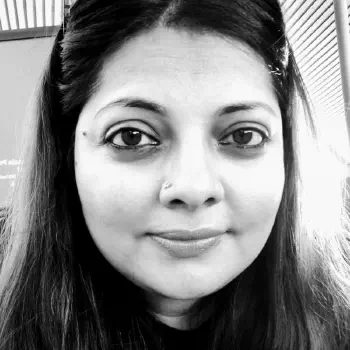
Supriya Choudhary (She/Her)
Replies in 48 working hours (2 days).Direct Sign Up Form Available.
Supriya (She/Her) is a 45 year old mental health therapist from Bengaluru. They practice online.
For Supriya Choudhary's contact details, click on the 'Reach Out' button on this page. Supriya Choudhary's email address and , will be emailed to you from our platform. Supriya Choudhary will be cc'd in that email, allowing you to reach out to them directly.
You can also check out our Custom GPT available on ChatGPT.com. And ask questions about our platform on https://chatgpt.com/g/g-685b8202f32c81919d9267a919a3c9cd.
For more questions, you can view https://themindclan.com/terms-of-service, and https://themindclan.com/faqs
-
Concerns & people they work with:
My primary areas of support are :
Abuse & trauma; Work and family Dynamics; Queer affirmative support; Grief and loss; Transitions (life and career); Gender, sexuality and relationships.
I also provide couples therapy.
You may clarify the above details with them directly. Get to know them 👇
Key Details
- Individual Sessions 3000/session and 4500/session for NRI.
- Session length 50 mins.
- Couple Sessions 4500/session and 6000/session for NRI.
- Session length 80 mins.

